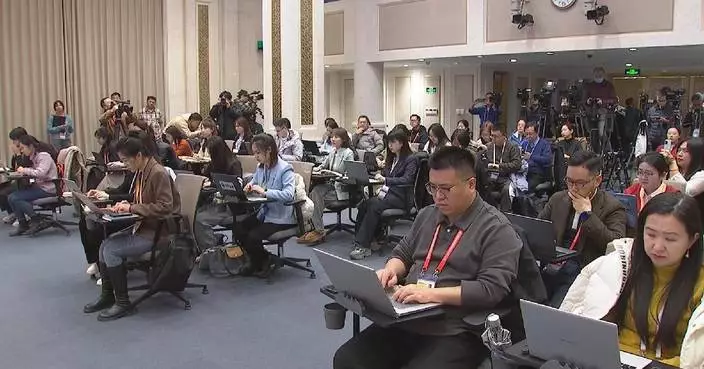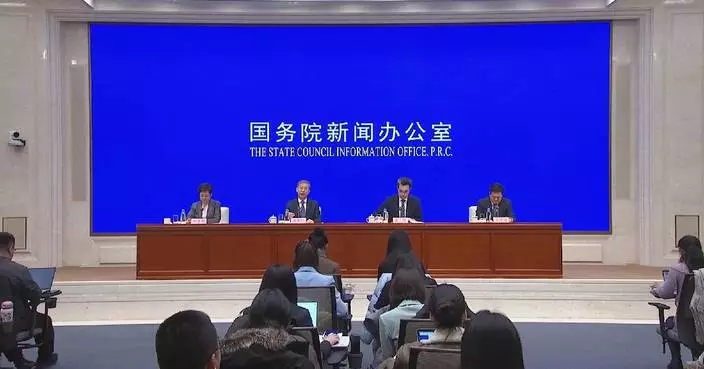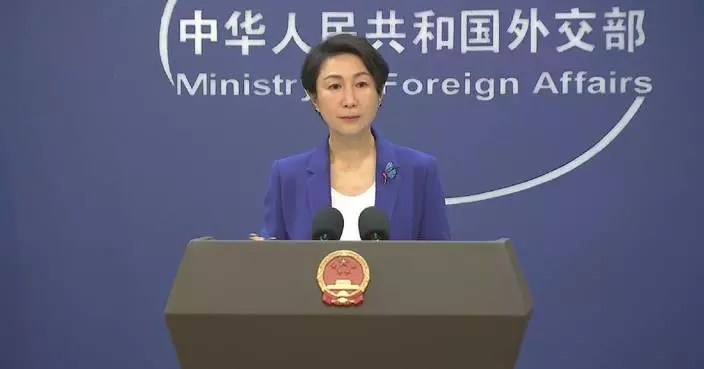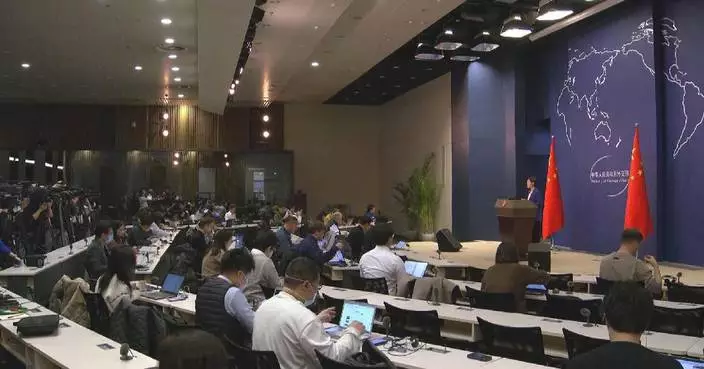The Shanghai International Commercial Court was inaugurated on Monday with the objective of advancing the professionalization and internationalization of foreign-related judicial mechanisms.
The newly-established court in Shanghai will strive to develop a specialized international commercial trial mechanism and build a more professional and efficient system for resolving international commercial disputes.
"We will collaborate with arbitration institutions and mediation organizations to build a three-in-one dispute resolution model that integrates litigation, arbitration, and mediation, so as to achieve resource sharing and leverage complementary strengths. We will open up a new path for parties to resolve disputes in a convenient, efficient and low-cost manner and create a multi-faceted co-governance solution for international commercial disputes," said Xi Xuefeng, Vice President of the Shanghai No.1 Intermediate People's Court.
Since the beginning of 2024, various courts across Shanghai have handled 700 judicial review cases involving foreign-related arbitrations. Last year, Shanghai was designated as a pilot area for the development of a national international commercial arbitration center.
Against the backdrop of a growing number of foreign-related commercial disputes and increasingly complex case types, the establishment of the Shanghai International Commercial Court is of great significance for further enhancing the megacity's international influence.
"As for the Shanghai arbitration industry in 2023, we have accepted a total of more than 12,000 arbitration cases, with the total amount in dispute reaching approximately 115.7 billion yuan. In 2024, both the number of cases accepted and the amount of dispute continued to increase," said Wang Weijun, secretary-general of the China International Economic and Trade Arbitration Commission.
The Shanghai International Commercial Court is scheduled to commence operation and begin accepting cases on Jan. 1, 2025.
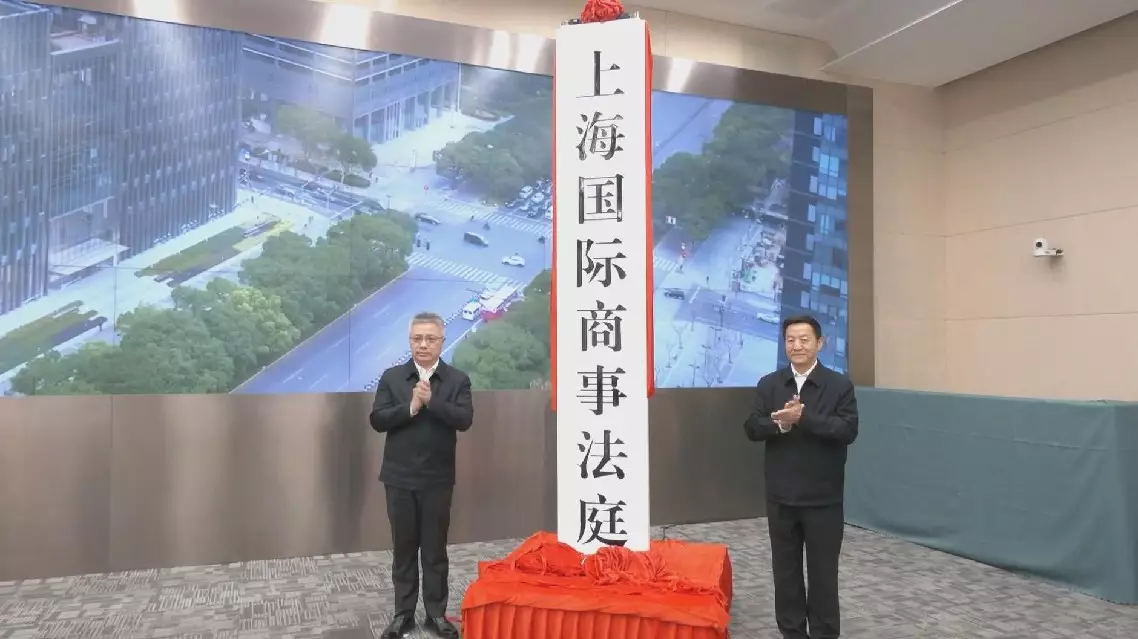
Shanghai Int'l Commercial Court inaugurated
China remains resolute in its pursuit of the dual-carbon goals of carbon peaking and carbon neutrality, positioning the green transition as a core driver of high-quality development, according to Zhao Chenxin, vice chairman of the National Development and Reform Commission.
Speaking at a press conference on Friday in Beijing, Zhao outlined significant achievements in 2024 and provided a roadmap for 2025, which includes advancing carbon reduction initiatives, strengthening green industries, and enhancing ecological protection efforts.
"We've rolled out guidelines for accelerating the green transformation of our economy and society and advancing nearly 200 specific initiatives. We've also released a catalog of industries supporting this transition, promoting 112 green technologies and 47 advanced low-carbon projects. We've developed a two-year action plan for energy conservation and carbon reduction, along with seven sector-specific plans, achieving significant progress. It is predicted that we reduced energy consumption intensity by over 3 percent last year, surpassing our targets. Additionally, we’ve implemented 194 national standards in the 'dual-carbon' field and supporting local governments in establishing carbon emission budget systems," Zhao said.
Zhao also emphasized that efforts in resource conservation and ecological protection continued to gain momentum.
"We've rolled out policies on promoting food conservation, reducing food waste, developing water-saving industries, and encouraging waste recycling. More than 60 billion yuan (about 8.2 billion U.S. dollars) of government funding has been allocated to enhance environmental infrastructure and support major ecosystem protection and restoration projects, including the 'Three-North Shelterbelt Forest Program'. Additionally, we've formulated the Ecological Protection Compensation Regulations, and increased the annual funding of central and local governments to nearly 300 billion yuan (over 41 billion U.S. dollars)," Zhao added.
In addition, significant attention was given to programs aimed at large-scale equipment upgrades and consumer goods trade-ins.
"In 2024, we allocated 300 billion yuan in ultra-long-term special treasury bonds to support large-scale equipment upgrades and consumer goods trade-in programs. In the first 11 months of the year, national investment in equipment and tool procurement rose 15.8 percent year on year, contributing 65.3 percent to overall investment growth. Through the trade-in program, over 60 percent of consumers chose new energy vehicles, driving the domestic penetration rate of new energy passenger cars to over 50 percent for six consecutive months," Zhao explained.
Looking ahead, China will mark two major milestones in 2025 - the 20th anniversary of Chinese President Xi Jinping introducing the concept that 'lucid waters and lush mountains are invaluable assets,' and the fifth year since China announced its dual-carbon goals.
Zhao said that the commission will continue to work with relevant stakeholders and prioritize these efforts by advancing carbon reduction, pollution control, green growth, and ecological expansion, while accelerating the comprehensive green transformation of the economy and society.
"We will actively plan the carbon peaking initiatives for the 15th Five-Year Plan (2026-2030), develop integrated evaluation and assessment methods, advance national carbon peaking pilot projects, and accelerate the building of zero-carbon industrial parks. We will further strengthen fiscal, financial, investment, and pricing policies and standards to foster the healthy development of green and low-carbon industries," Zhao stated.
"We will continue to enhance environmental infrastructure, implement major ecosystem protection and restoration projects, and explore mechanisms to realize the value of ecological products. We will work to achieve greater results in promoting the programs of large-scale equipment upgrades and consumer goods trade-in, so as to increase funding, broaden coverage, optimize the implementation of the policies, and amplify their leverage effects in 2025," Zhao concluded.
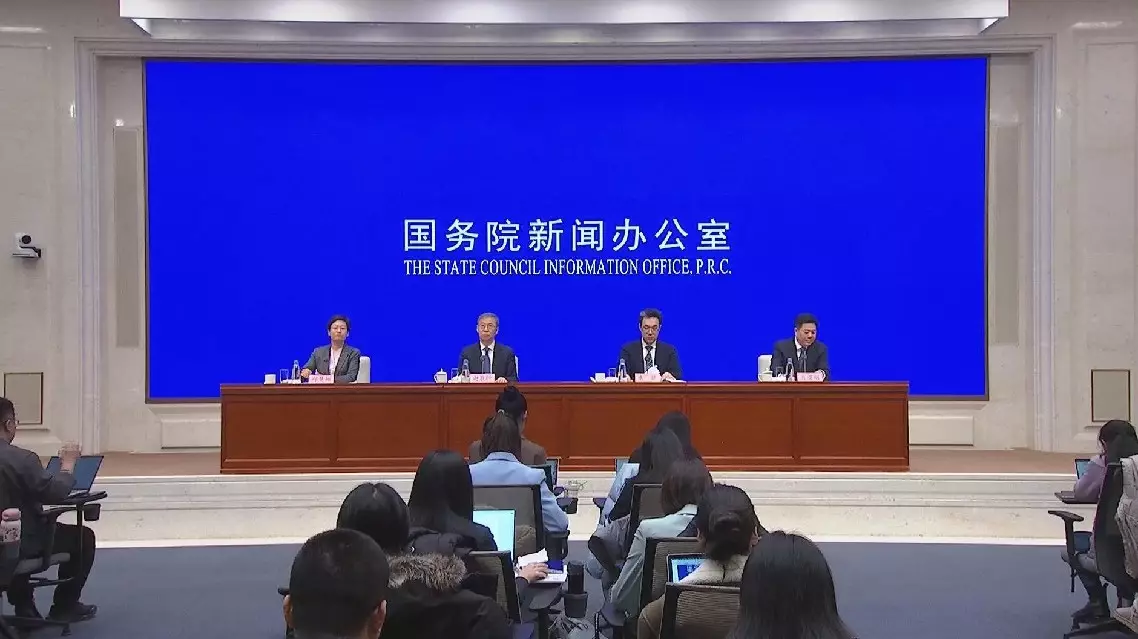
China reaffirms commitment to green transition and dual-carbon goals: NDRC






